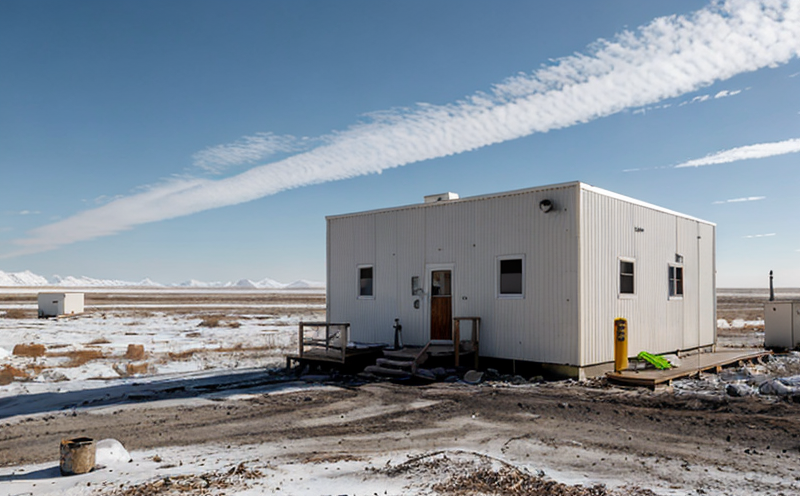JEDEC JEP82 Reliability Procedures for Harsh Radiation Testing
The JEDEC JEP82 standard is designed to ensure that semiconductor and microchip products can withstand the harsh environmental conditions they may encounter in real-world applications, particularly those involving radiation. This standard is crucial for industries where reliability under extreme environments is paramount, such as aerospace, defense, medical technology, and space exploration.
The JEP82 procedures are intended to simulate the effects of various types of ionizing radiation that can occur naturally or be artificially induced in manufacturing processes. These include gamma rays, X-rays, and alpha, beta, and high-energy electron particles. The standard provides a framework for testing semiconductor devices to ensure they meet specific reliability criteria under these conditions.
One of the key features of JEP82 is its focus on the total ionizing dose (TID), which quantifies the cumulative radiation exposure that a device might experience over its operational lifetime. This dosage can be expressed in units of rad or Gray, and it plays a critical role in determining whether a device will function correctly after exposure to high levels of radiation.
The testing process typically involves exposing semiconductor samples to controlled levels of ionizing radiation using specialized equipment designed for this purpose. The specimens are then subjected to various performance tests to evaluate their stability and functionality post-exposure. These tests may include electrical parameter measurements, functional integrity checks, and durability assessments.
Proper specimen preparation is essential before undergoing JEP82 testing. This includes ensuring that the chips or modules are in a condition suitable for accurate measurement and evaluation. Factors such as temperature stabilization, cleanliness, and packaging integrity can significantly impact the outcome of these tests.
The instrumentation used for JEP82 testing must be highly precise to ensure accurate dosage calculations and consistent results. Commonly employed devices include linear accelerators for generating high-energy electron beams, gamma irradiators for exposing specimens to gamma radiation, and X-ray generators for producing X-rays.
After the test, detailed reporting is conducted to document all aspects of the procedure and the outcomes. This report typically includes information on the type of radiation used, dosage levels applied, environmental conditions during testing, and a comprehensive summary of observed changes in device performance. The results are then analyzed to determine if the tested components meet the specified reliability criteria outlined by JEP82.
Compliance with JEP82 ensures that semiconductor products can perform reliably under demanding radiation environments, thereby enhancing product safety and operational longevity. This compliance is particularly important for applications in high-risk sectors where failures could have severe consequences.
Why It Matters
The reliability of semiconductor devices in harsh radiation environments directly impacts the safety and performance of critical systems across various industries. Ensuring that these components function correctly under extreme conditions is vital for maintaining operational integrity and preventing costly failures.
In aerospace applications, for instance, satellite communications depend on robust semiconductors that can withstand cosmic ray exposure during space missions. In medical technology, implantable devices must be reliable in the presence of radiation to safeguard patient health. Similarly, defense electronics need to perform reliably under battlefield conditions where they may be exposed to intense radiation.
The importance of JEP82 lies in its ability to provide a standardized approach for assessing semiconductor reliability across different environments and applications. By adhering to this standard, manufacturers can ensure their products meet the necessary quality and performance benchmarks, thereby reducing risks associated with equipment failure in critical systems.
Compliance with JEP82 also fosters trust among stakeholders by demonstrating a commitment to high-quality manufacturing practices. It helps establish a benchmark for industry best practices and contributes to the overall advancement of semiconductor technology.
Industry Applications
- Aerospace: Ensuring satellite components can withstand cosmic ray exposure during space missions.
- Defense: Providing reliable electronics in high-risk environments where they may be exposed to intense radiation.
- Military: Supporting the development of robust communication systems and other critical equipment used in military operations.
- Medical Technology: Guaranteeing that implantable devices function correctly despite potential exposure to radiation during use or manufacturing processes.
- Space Exploration: Ensuring spacecraft components are capable of withstanding the harsh conditions encountered in space.
The versatility and robustness provided by JEP82 make it an essential tool for industries where semiconductor reliability is critical. By following this standard, manufacturers can enhance their products’ performance and safety in demanding environments.
International Acceptance and Recognition
- JEP82 has gained widespread acceptance among global electronics manufacturers due to its comprehensive approach to testing semiconductor reliability under harsh radiation conditions.
- This standard is recognized by major international standards organizations, including JEDEC, IEEE, and ISO, further validating its importance in the industry.
- Many countries have adopted JEP82 as a benchmark for quality assurance in their national standards and regulations.
The recognition of JEP82 underscores its significance in ensuring that semiconductor devices meet stringent reliability requirements. This international acceptance enhances trust among manufacturers, customers, and regulatory bodies worldwide.





